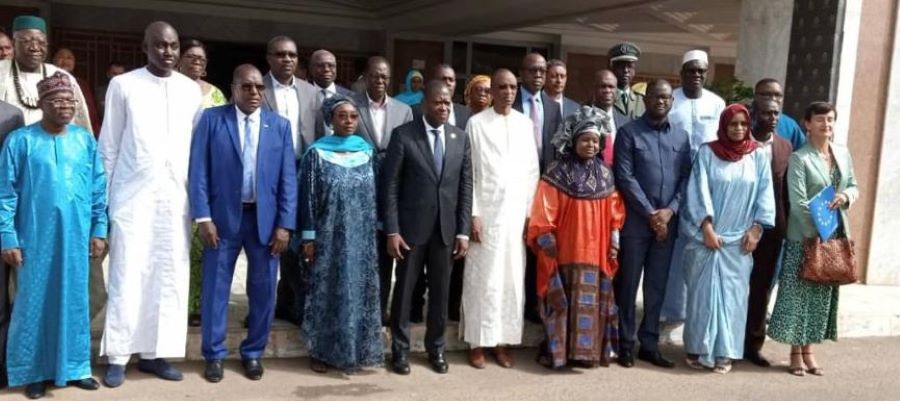Blog |
WAEMU Ministers strategize on biodiversity, Protected Areas, and coastal and marine management
In Juin 2020, WAEMU ministers, experts and partners met in Dakar.
In Juin 2020, WAEMU ministers, experts and partners met in Dakar, Senegal to deliberate on issues summarized in the Dakar Declaration.
“Coastal and biodiversity conservation sites face numerous and pressing challenges. The scale and complexity of the issues require a global, regional and multidisciplinary approach as well as significant financial resources,” Kako Nubukpo, Commissioner, Agriculture, Water Resources and Environment, WAEMU.
Ministers made the following deliberations included in the Dakar declaration:
1. Warmly thank and congratulate the WAEMU Commission for the quality of the work carried out and for its leadership in the coordination of regional initiatives related to the sustainable management of the environment and natural resources, in particular those relating to the management of coastal risks, the preservation of regional biodiversity and the concerted governance of cross-border protected areas;
2. Approve the 2020 assessment of the coasts of West and Central Africa as well as the cartographic products resulting from it and recommend their wide dissemination, in particular at the level of the political authorities of each of the States concerned, in order to promote their appropriation and their transcription into national policies;
3. Endorse the results of the feasibility study of the Regional Observatory of the West African Coast to monitor the evolution of coastal zones and ask the WAEMU Commission to take the appropriate measures to facilitate its establishment in consultation with UEMOA, ECOWAS, ECCAS countries and other institutions and regional organizations;
4. Urge countries to invest in the establishment and operationalization of coastal observation systems to improve knowledge at regional and national levels in order to limit the use of emergency solutions;
5. Also urge countries to support the establishment and operationalization of national observatories through the acquisition and installation of measuring instruments;
6. Approve the draft WAEMU community regulations as instruments for accelerating the implementation of the Additional Protocols to the Abidjan Convention and request the WAEMU Commission to continue the process of their adoption by the Council Statutory Ministers of the Union;
7. Invite the other countries, parties to the Abidjan Convention, to speed up the process of ratifying the additional protocols and/or to exploit legal alternatives for their adoption;
8. Note the overall progress on the implementation of regional programs on biodiversity and protected areas and renew our confidence in the leadership of WAEMU to accelerate the implementation of these major programs for the region;
9. Urge the States and the Commission to formally implement OBAPAO in their strategic planning instruments;
10. Invite States, with the support of Intergovernmental Organizations and Technical and Financial Partners, as well as local communities, to sustainably secure protected areas, particularly in the WAP complex between Benin, Burkina Faso and Niger;
11. Invite States to explore mechanisms for the sustainable financing of biodiversity and protected areas, through public-private partnership (PPP) and membership of trust funds for conservation;
12. Recommend to the WAEMU Commission to ensure greater synergy between the processes for setting up observatories for biodiversity, for Protected Areas and for West and Central Africa coast and good complementarity in their operations in support of national and regional land use planning policies;
13. Commend all national, regional and international institutions, in particular UEMOA, UNEP/Abidjan Convention, IUCN, CSE, for their significant contributions to improving the quality of the deliverables presented;
14. Thank the technical and financial partners of the region, in particular the World Bank and the European Union for their highly appreciated support for the preservation and better management of shared natural resources in West Africa and Central Africa;
15. Urge the WAEMU Commission to strengthen the involvement of non-member countries, regional integration institutions in West Africa (ECOWAS) and Central Africa (ECCAS) in the conduct of initiatives for a concerted, participatory and integrated management of the environment and the shared natural resources.
